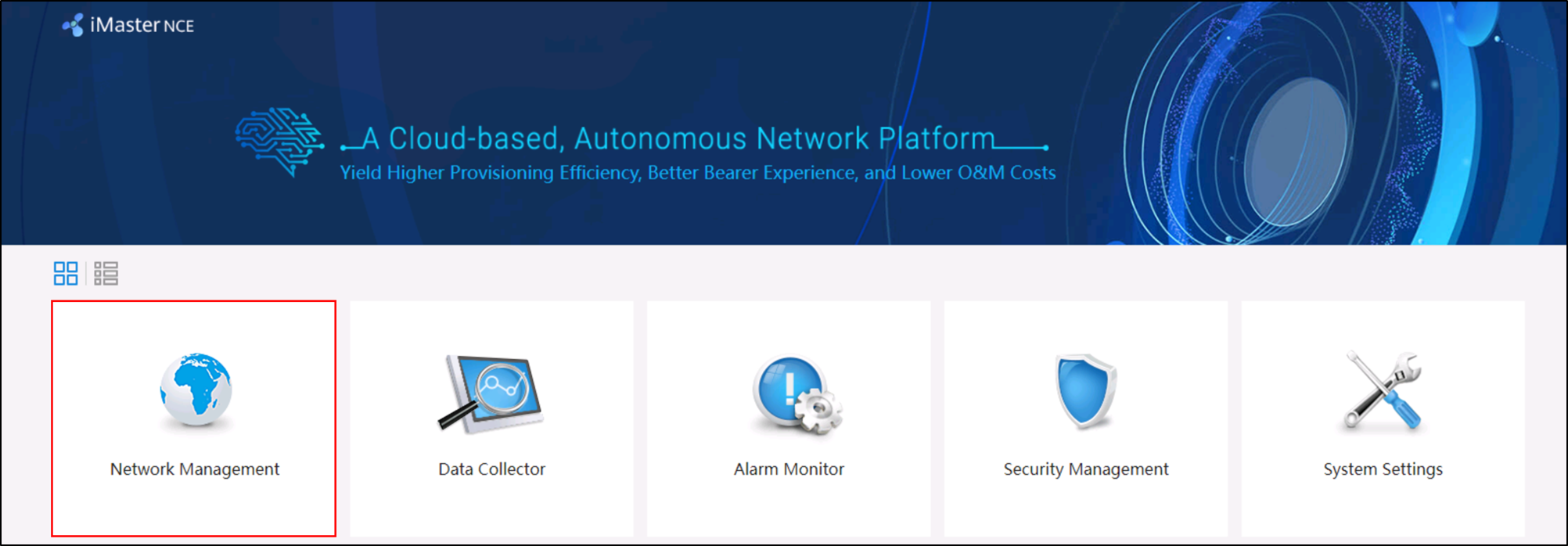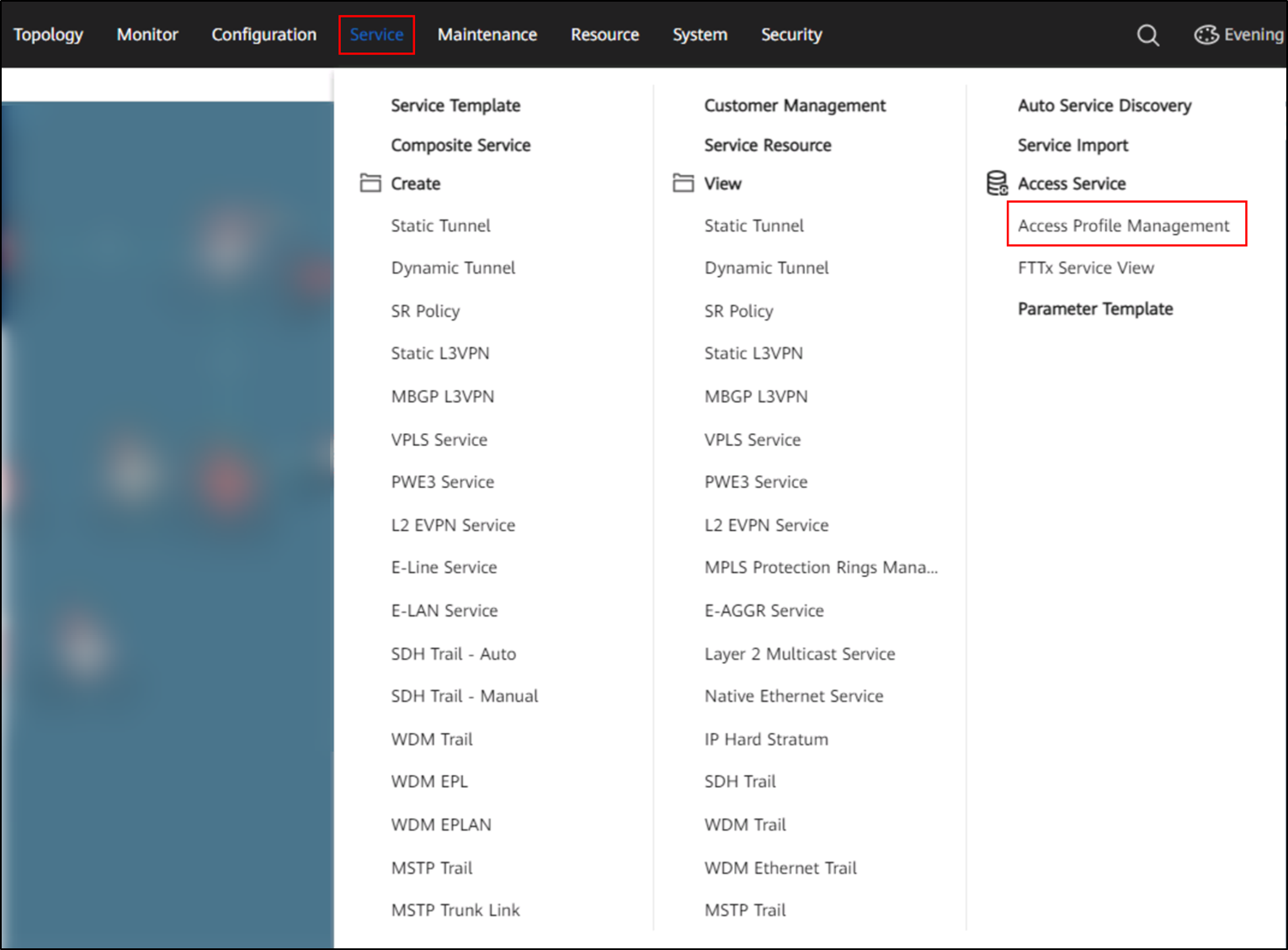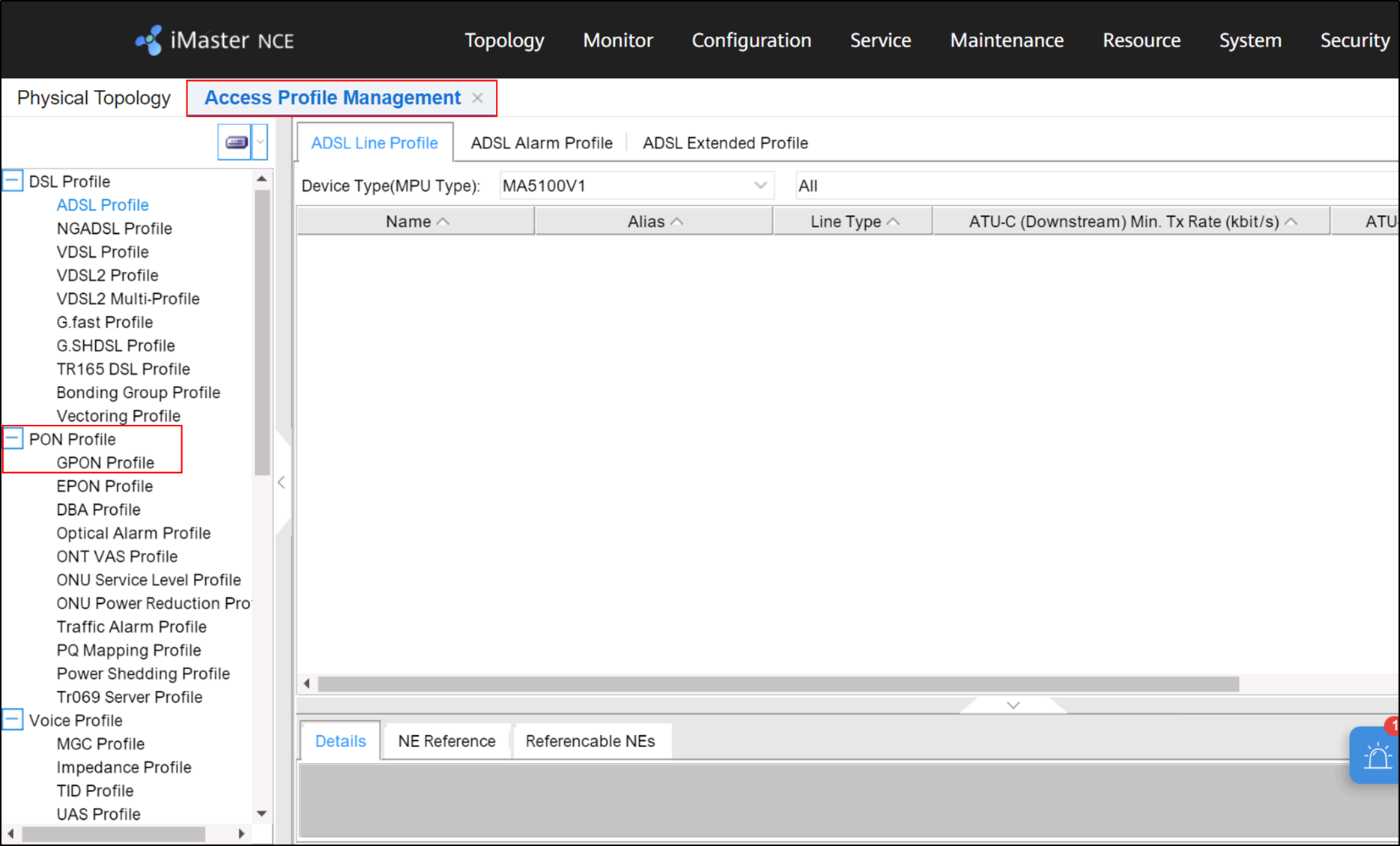DBA Profile Create in NCE-FAN NMS
Here i give example how DBA Profile create in NCE-FAN NMS.
DBA profile is dynamic bandwidth allocation profile, Which improving upstream bandwidth utilization in GPON Network.
Before line Profile configure you need to configure DBA profile.
Follow below step by step process:
1. Log in to NCE and choose Network Management.

2. Select a Service and click the Access Profile Management tab.

3. On the Access Profile Management tab page, choose PON Profile > GPON Profile.

3. Choose DBA Profile and Right-click Add Global Profile from the shortcut menu.

4. In the Add DBA Profile dialog box, set the parameters of the DBA profile, such as Name, Type, and Maximum Bandwidth.

Generally, the bandwidth types of a DBA profile are as follows:

5. Click OK.
the DBA profile has been configured. Now you can bind this profile with your line profile.
There are generally two types of DBA (Dynamic Bandwidth Allocation) in GPON (Gigabit-capable Passive Optical Networks):
- Reporting DBA: In this type of DBA, the Optical Network Terminal (ONT) reports to the Optical Line Terminal (OLT) about the amount of bandwidth required. The OLT then allocates the bandwidth to the ONT based on the reported demand. This type of DBA is commonly used in residential networks where traffic patterns are highly variable, and the demand for bandwidth is not predictable.
- Non-reporting DBA: In this type of DBA, the OLT allocates bandwidth to the ONT without receiving any reporting from the ONT. The OLT assigns a predetermined amount of bandwidth to each ONT based on the service level agreement (SLA) with the subscriber. This type of DBA is commonly used in business networks where the traffic patterns are more predictable and the demand for bandwidth is more stable.
There are 5 Types of DBA which need to configure in Huawei OLT DBA Profile, Below are details:
- Type 1: Fixed bandwidth: The fixed bandwidth is reserved for a specified ONU or certain services of the ONU. It cannot be used for other ONUs even when the upstream service stream is not transmitted on the ONU. This type of bandwidth is mainly used for services, such as TDM and VoIP that have a high QoS requirement.
- Type 2: Assured bandwidth: The ONT is guaranteed a minimum amount of bandwidth, but it can use more if it is available. The OLT (Optical Line Terminal) dynamically allocates bandwidth to the ONT based on the traffic demand, but it must always provide the minimum assured bandwidth to the ONT.
- Type 3: Assured+Maximum bandwidth: In this type of SLA, the ONT is guaranteed a minimum amount of bandwidth (assured), and it has allocated a maximum amount of bandwidth that it can use. The OLT dynamically allocates bandwidth to the ONT based on the traffic demand, but it cannot exceed the maximum allocated bandwidth. This type of bandwidth is mainly used for VoIP and IPTV services.
- Type 4: Maximum bandwidth: This type of bandwidth is the maximum bandwidth that can be used by an ONU to meet the ONU bandwidth requirement to the greatest extent. It is used for services such as Internet access service.
- Type 5: Mixed Model: In this type of SLA, different types of SLAs are assigned to different ONTs on the same PON (Passive Optical Network) based on their service requirements. For example, an ONT that requires a high bandwidth for video streaming can be assigned an Assured+Maximum SLA, while an ONT that requires a lower bandwidth for web browsing can be assigned a Fixed SLA.
you can check below post for Line Profile Configure.
Line Profile Create by NCE-FAN NMS
GPON Profile configure example in YouTube.

